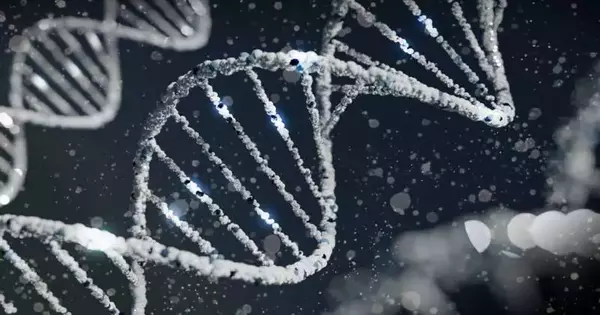Alexander Bick, MD, PhD, co-leads a group of international biomedical researchers. Researchers at Vanderbilt University Medical Center have developed a new method to gauge the growth rate of blood stem cell precancerous clones that one day may assist physicians in reducing the risk of blood cancer in their patients.
An activating gene that promotes clonal expansion was discovered thanks to the PACER technique. The results, which were reported in the journal Nature, imply that TCL1A-targeting medications may be able to prevent cancer clonal growth and its related symptoms.
“We believe that TCL1A is a new significant drug target for preventing blood cancer,” said Bick, who co-authored the study with Siddhartha Jaiswal, MD, Ph., of Stanford University. D.
“Some people have a mutation that stops TCL1A from turning on, protecting them from blood cancer and from quicker clone proliferation,”
Alexander Bick, MD, Ph.D., at Vanderbilt University Medical Center
More than 10% of older adults experience somatic (non-inherited) blood stem cell mutations that can result in explosive, clonal cell expansions, raising the risk of blood cancer and cardiovascular disease.
Since joining VUMC in 2020, Bick, an assistant professor of medicine in the division of genetic medicine and the director of the Vanderbilt Genomics and Therapeutics Clinic, has contributed to more than 30 academic papers that shed light on the mysteries of clonal growth (hematopoiesis).
Mutations develop in the body’s dividing cells as we get older. These mutations typically only carry harmless “passenger” mutations. However, occasionally, a mutation leads to the creation of a clone, which in turn results in cancer.
In the past, researchers would compare blood samples collected decades apart to calculate the rate of clonal expansion. By counting the number of passenger mutations, Bick and his coworkers developed a method for calculating the growth rate from a single timepoint.
Bick suggested comparing passenger mutations to the rings on a tree. “A tree gets older and has more rings as it ages. We can calculate the growth rate if we know the clone’s age (i.e., when it was born) and size (i.e., what proportion of the blood it consumes).
More than 5,000 people without blood cancer who had acquired specific, cancer-associated driver mutations in their blood stem cells, known as “clonal hematopoiesis of indeterminate potential” (CHIP), were subjected to the PACER technique for calculating the “passenger-approximated clonal expansion rate.”
The researchers next searched for genetic variations connected to various rates of clonal growth using a genome-wide association study. They were shocked to learn that the gene TCL1A, which had not previously been connected to blood stem cell biology, was a significant promoter of clonal expansion when activated.
The team also discovered that a frequently inherited variation of the TCL1A promoter, the region of DNA that normally initiates transcription (and subsequently activates the gene), was linked to a slower rate of clonal expansion and a noticeably lower prevalence of several driver mutations in CHIP, the second step in the development of blood cancer.
Experimental research has shown that the variant blocks gene activation.
According to Bick, “some individuals have a mutation that prevents TCL1A from being turned on, protecting them from both faster clone growth and from blood cancer.” Because of this, the gene is particularly intriguing as a potential drug target.
He also said that more research is being done in the hopes of discovering other crucial pathways that are pertinent to precancerous growth in other tissues in addition to the blood.
The study involved researchers from more than 50 institutions across the United States, as well as those from Germany, Sweden, and the Netherlands. Taralyn Mack, Dan Roden, MD, Benjamin Shoemaker, MD, MSCI, and other VUMC employees also contributed to the article.
More information: Joshua S. Weinstock et al, Aberrant activation of TCL1A promotes stem cell expansion in clonal haematopoiesis, Nature (2023). DOI: 10.1038/s41586-023-05806-1





